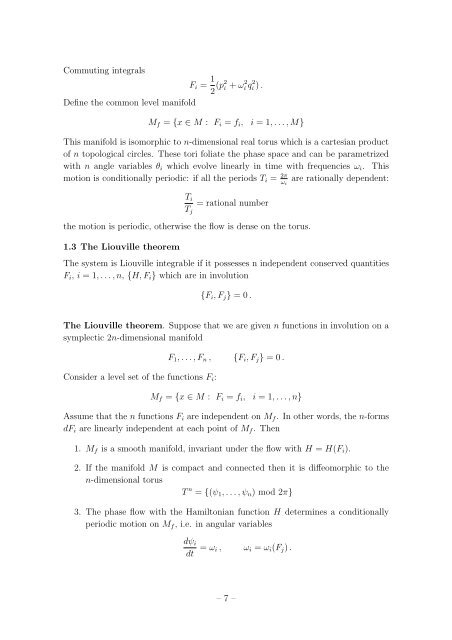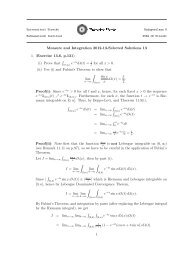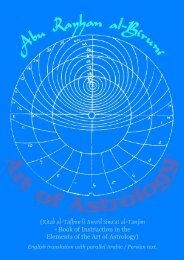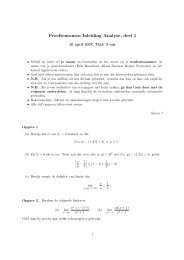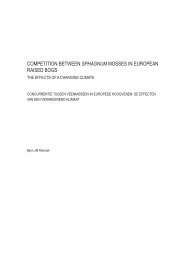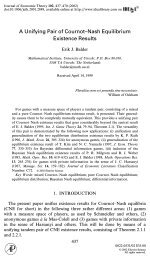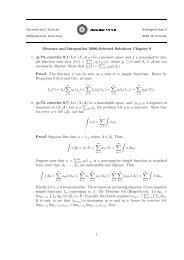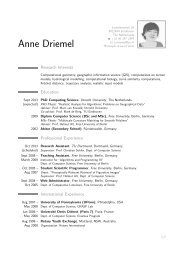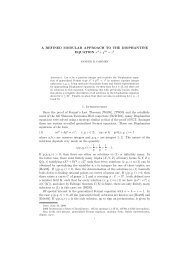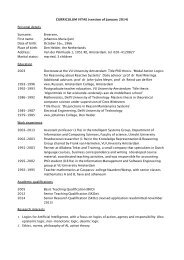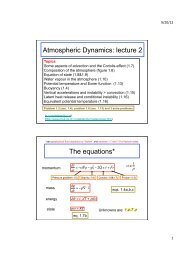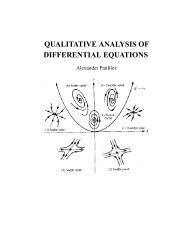Student Seminar: Classical and Quantum Integrable Systems
Student Seminar: Classical and Quantum Integrable Systems
Student Seminar: Classical and Quantum Integrable Systems
You also want an ePaper? Increase the reach of your titles
YUMPU automatically turns print PDFs into web optimized ePapers that Google loves.
Commuting integrals<br />
F i = 1 2 (p2 i + ω 2 i q 2 i ) .<br />
Define the common level manifold<br />
M f = {x ∈ M : F i = f i , i = 1, . . . , M}<br />
This manifold is isomorphic to n-dimensional real torus which is a cartesian product<br />
of n topological circles. These tori foliate the phase space <strong>and</strong> can be parametrized<br />
with n angle variables θ i which evolve linearly in time with frequencies ω i . This<br />
motion is conditionally periodic: if all the periods T i = 2π<br />
ω i<br />
are rationally dependent:<br />
T i<br />
T j<br />
= rational number<br />
the motion is periodic, otherwise the flow is dense on the torus.<br />
1.3 The Liouville theorem<br />
The system is Liouville integrable if it possesses n independent conserved quantities<br />
F i , i = 1, . . . , n, {H, F i } which are in involution<br />
{F i , F j } = 0 .<br />
The Liouville theorem. Suppose that we are given n functions in involution on a<br />
symplectic 2n-dimensional manifold<br />
Consider a level set of the functions F i :<br />
F 1 , . . . , F n , {F i , F j } = 0 .<br />
M f = {x ∈ M : F i = f i , i = 1, . . . , n}<br />
Assume that the n functions F i are independent on M f . In other words, the n-forms<br />
dF i are linearly independent at each point of M f . Then<br />
1. M f is a smooth manifold, invariant under the flow with H = H(F i ).<br />
2. If the manifold M is compact <strong>and</strong> connected then it is diffeomorphic to the<br />
n-dimensional torus<br />
T n = {(ψ 1 , . . . , ψ n ) mod 2π}<br />
3. The phase flow with the Hamiltonian function H determines a conditionally<br />
periodic motion on M f , i.e. in angular variables<br />
dψ i<br />
dt = ω i , ω i = ω i (F j ) .<br />
– 7 –


